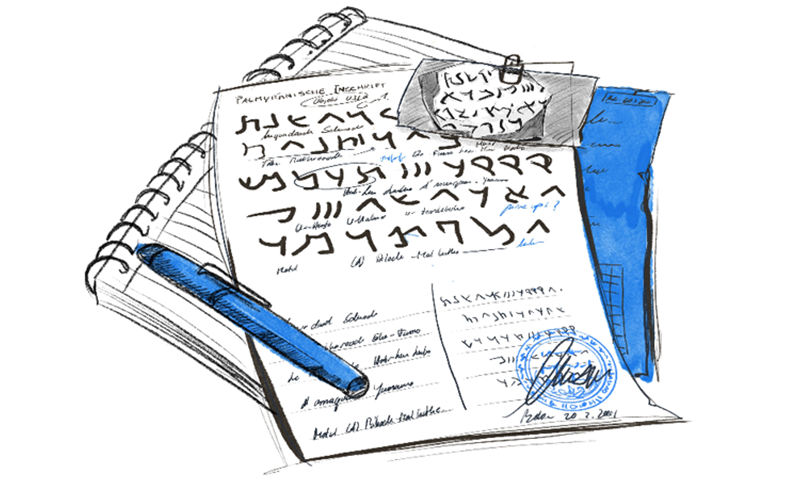A young man is looking for old coins with a metal detector? An elderly lady wants to take a stone as a souvenir from an excavation site? At a bazaar, you discover an antique vase of unknown origin?
Make a joint fact check with the help of our Glossary or find out how you can become active via the provided links. As a training course, we also recommend our game Taskforce: Saving Antiquities, where you work together to preserve our cultural heritage.
Suspicion of a robbery or an antiquity with an illegal provenance? What can be done?
Not only in conflict regions are cultural sites repeatedly plundered and destroyed to a frightening extent, but Germany is also affected by illegal excavations and those with metal detectors. Not only are invaluable testimonies of cultural heritage for humanity lost due to this, but also the context necessary for the reconstruction of history. In addition, the respective region suffers a significant loss of its cultural identity.
You too can help prevent the destruction and looting of archaeological monuments. The demand for antiquities is driving the destruction of cultural heritage throughout the world. There is a proven link between the illegal trade in antiquities from looted excavations and museums and the financing of terrorist groups worldwide. However, everyone can make their own contribution to supporting the protection of cultural property:
Support organizations that monitor, document and preserve the cultural heritage in your region.
Report
- Stolen or looted cultural property and dubious offers to the German Federal Police or INTERPOL, or to the State Criminal Police Office of Hesse; museums and state monument offices that have appropriate networks,
- Unauthorized searches using metal detectors and magnetic fishing to the local police department;
- Objects in which doubts about the legal origin arise during the preparation of an expert opinion.
Ask about and question
- The origin and history of an object (export documents, receipts and previous owners: inside at offered objects),
- The authenticity of the offered objects (incl. supporting documents).
Forego
- Purchasing antiques, especially those for which no papers (receipts; export papers of origin, etc.) are available,
- Purchasing antiques at flea markets or treasure hunter meetings,
- Participating in organized search operations using metal detectors,
- Initially making objects of dubious origin public, or publishing misleading reports.
Do you want to discuss the topic in a more in-depth manner with friends and families? Here are some questions for such a conversation:
- What significance do ancient cultures have for society today?
- What points of contact do modern societies have with ancient cultures?
- What is meant by the term ‘cultural property’?
- Why is the protection and preservation of cultural property important anyway?
- Who is involved in the protection of cultural property and how?
- Why are the knowledge and skills of Classical Studies so important for dealing with cultural property?
- Which economic contexts are globally united in the cultural sector?
- What is the significance of illegal excavations for individual regions?
- Which departments of the police are engaged in the protection of cultural property?
- What is the significance of cultural-historical and scientific reports in the evaluation of cultural property?
- How do the public collections deal with return requests, what is the public perception, and what is your opinion on this matter?

